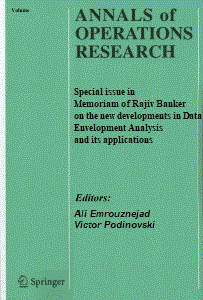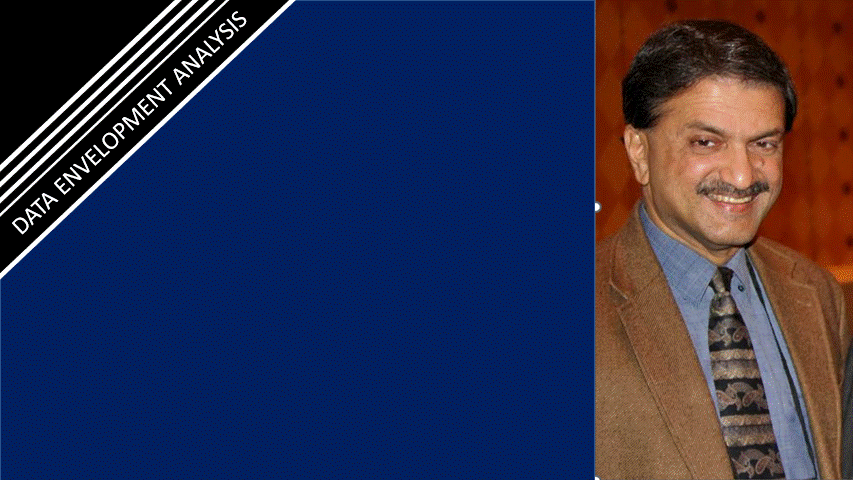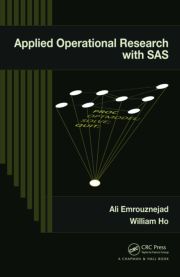Call for papers
 Call for papers: Socio-Economic Planning Sciences – Special Issue: “Data envelopment analysis: Novel models and methodologies for efficiency and performance assessment of public organisations Guest Editors: Victor Podinovski, Loughborough Business School, UK Grammatoula Papaioannou, Loughborough Business School, UK |
Special issue information:
Performance and efficiency assessment of the public sector organisations is an important and fast-growing area of research.
Data envelopment analysis (DEA) is a major methodology used for the analysis of efficiency of public organisations. This is partly because of the complex nature of such organisations and the contexts in which they operate, and also because of the multidimensional nature of the resources used and services provided by them.
This special issue will be a natural outlet for the papers seeking to develop novel mathematical models and methodologies for efficiency evaluation in the public sector. These methodologies will address ways to account for complex organisational structures, different socio-economic environments, different types of data, multiple perspectives of several stakeholders in the decision-making process, and other factors and considerations.
Scope
This special issue will show development of new models and methodologies addressing common issues and complexities arising in applications of DEA to public sector organisations. These include, but are not limited to, complex organisational structures, differences in socio-economic environment, use of different types of data (e.g., categorical or ratio types), preferences of the stakeholders, quality characteristics of the services, equity and equality aspects of the assessment and decision-making processes, and so on.
It is expected that papers in this special issue will cover the above topics, with fully developed or illustrative applications in such sectors as education, health care and various public services.
Evaluation criteria
Submitted manuscripts are expected to advance the modelling of complex evaluation scenarios in the public sector applications, by making a noticeable contribution to either theory or methodology of DEA.
The main evaluation criteria will be novelty of the models and methodologies, as well as their sound justification and interpretation in the discussed application context. The writing should be clear, concise and inspiring. Straightforward applications of known DEA techniques to a particular sector, without clear modelling contributions, and also purely mathematical derivations, without a clear practical motivation, may not be a good fit for this special issue.
Manuscript submission information:
Planned timeline
Manuscript submission opens: 01 December 2023
Manuscript submission closes: 30 June 2024
Submission guidelines
Please submit your manuscript through the journal’s submission system, following the guidelines available here.
When submitting, please make sure that you select Article Type: “VSI: Data envelopment analysisr”.
All submitted manuscripts will be rigorously reviewed according to the editorial policy of Socio-Economic Planning Sciences and in line with the scope of this Special Issue.
Guest Editors
| Victor Podinovski Loughborough Business School, UK, V.Podinovski@lboro.ac.uk | Grammatoula Papaioannou Loughborough Business School, UK G.Papaioannou@lboro.ac.uk |

























